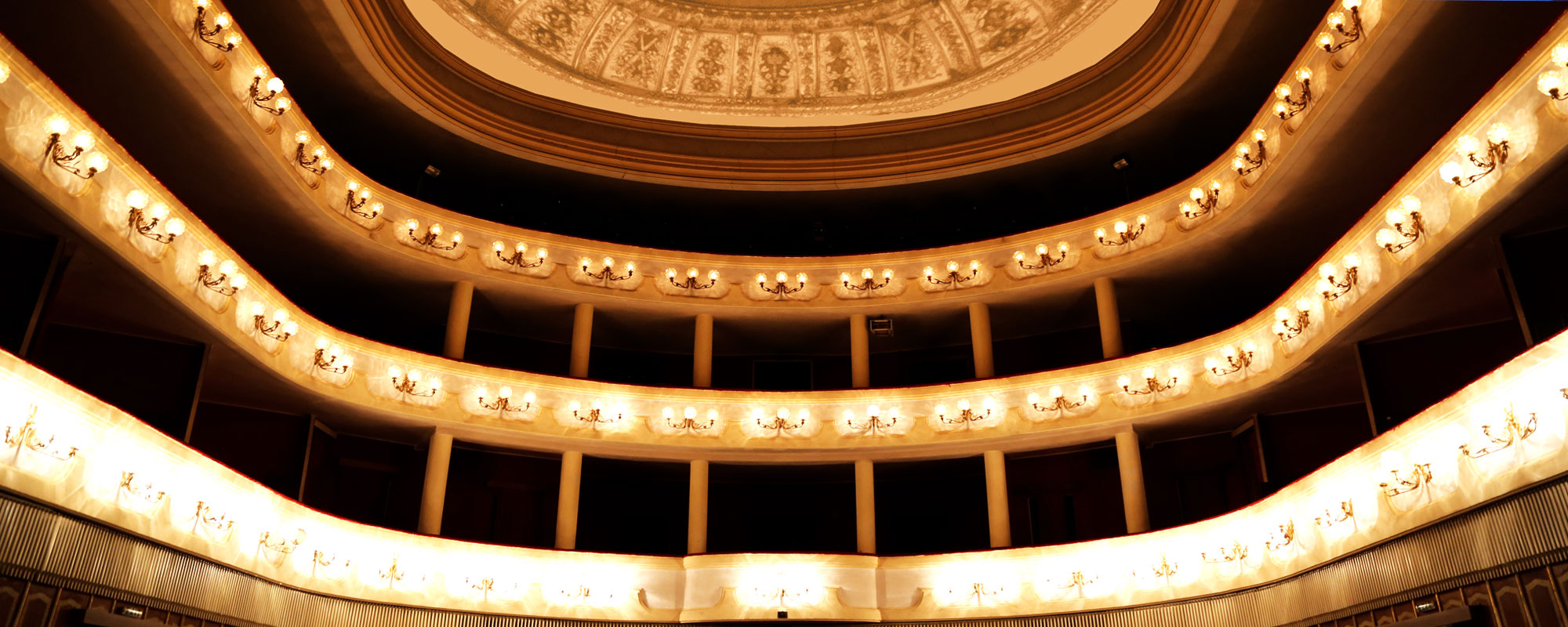The merry widow
Franz Lehár
- World premiere
- Theater an der Wien, 25 decembrie 1905
- Romanian Opera Craiova Premiere
- 24 martie 2011
- Time Length
- aprox. 3h – două pauze
- Extra info
- Spectacol în limba română
Operetta in three acts, composed by Franz Lehár.
Libretto by Victor Léon and Leo Stein, based on the comedy The Embassy Attaché by Henri Meilhac.
The action takes place in Paris.
ACT I
The elite of the “Pontevedrian” society of Paris takes part in a ball celebrating the name’s day of the head of the “Pontevedro” state. Ambassador Zetta is overly confident in his wife, the Parisian Valencienne, which is why she encourages an entertaining romantic affair with Camille de Rosillon, a military officer. In a fit of love, he had written “I love you” on the young lady’s fan.
The presence of a beautiful, young and rich widow, Hanna Glawari, is announced. She is highly admired, but also raises the ambassador’s concerns. Since Hanna’s huge fortune is deposited in the safes of the bank of Pontevedro, he considers that he should avoid by all means the estrangement of money. This might occur in case the widow marries someone outside the state. The ambassador thinks that the best solution would be to have a Pontevedrian pretender. To this purpose, he chooses Danilo Danilovitsch, the embassy attaché, an elegant, party-addicted and somewhat superficial young man, who usually spends his time in the famous Parisian establishment Maxim’s. He is called to duty by the ambassador: he must conquer the famous and beautiful wife, and propose marriage to her.
ACT II
A party at the house of Hanna Glawari, who is receiving her guests. The renowned fan continues its travels. Danilo recognizes Camille’s handwriting and thinks the message is directed to Hanna; the young widow reads the message as coming from Danilo. Raptured by their sentimental affair, Valencienne and Camille have retired to a pavilion, where they are subsequently followed by ambassador Zetta. He is preparing to make a scandal, but he is surprised to discover that Hanna is in the pavilion with Camille de Rosillon, having discretely replaced Valencienne. Danilo’s reaction is violent and, out of jealousy, he leaves immediately, taking refuge, as usual, at Maxim’s.
ACT III
We are invited to the happy environment of Maxim’s, where all the characters of our story gradually appear. The game with the compromising fan is combined with the hunt for the inheritance. Danilo, actually behaving like a dandy, consoles himself with his friends at the cabaret. Anyway, he no longer wants to fall victim to the charm of love, which has made him suffer, nor listen to Hanna’s explanations, whom he does not believe any more. Willing to regain his love the young widow insists, apparently with no success. Between all these combinations, ambassador Zetta has established that Valencienne is cheating on him. He decides to divorce, asking for Hanna’s hand – and fortune! However, the widow announces that a marriage will result in her loss of all the money. Proposals are immediately withdrawn, with Danilo remaining the only pretender. Hanna happily accepts the situation and, smiling, announces that the entire fortune has been lost… to her second husband. The happiness of love now completes her merriment as a… former widow.
*Titus Moisescu & Miltiade Păun, Ghid de operetă, Editura Muzicală a Uniunii Compozitorilor, Bucharest, 1969

